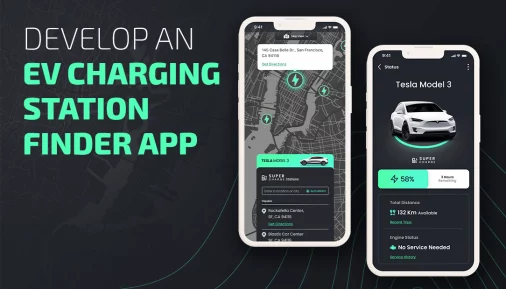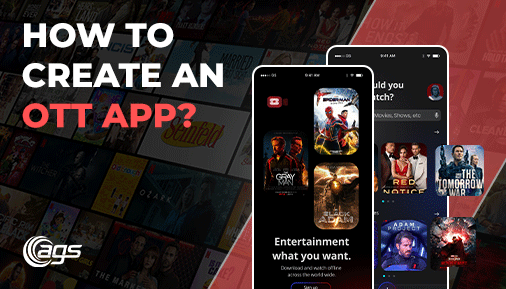Personal finance apps are a path-breaking technology in the field of finance. We want to wisely manage our money but due to the lack of knowledge, we fail at it. In the past, complex accounting systems were used but with apps, finance is just a click away.
Being a bespoke mobile app development company, we are well acquainted with personal finance app development solutions. In this particular article, we are explaining what is personal finance app, the benefits of using a personal finance app, how to develop a personal finance app, and overall personal finance app development cost.
As per stats, the personal finance software market is growing at a CAGR of 5.7 % and is pegged to reach $1,576.86 million by 2027. Key reasons behind the rapid growth of the market are as follows-
- The rise in the number of personal finance applications
- Increased digitalization of financial services by different parties like banks, fintech players, etc
- Rise in financial education and awareness regarding money management
- Increased adoption of personal finance apps during COVID-19 imposed lockdowns
What is a Personal Finance app?
A personal finance app is your one-stop destination to manage all your personal finances. These apps can track your spending, manage your investments and predict viable investment options for you. There are various types of personal finance apps in the market. While largely they can be divided into two brackets- Simple and Complex finance apps.
Simple finance apps
As the name suggests, these are the most basic apps for tracking income and expenses. In most cases, these apps rely on manual data input. Since no bank accounts are linked to these apps, the risk factor is nil. When it comes to the app development process, these apps are very inexpensive.
Complex finance apps
Advanced finance apps are more complex than simple ones. They enable users to link their bank accounts and credit cards, allowing data to be synchronized automatically. These apps are generally much more comprehensive and allow users to perform a variety of tasks instead of just a few. Complex finance apps have a high efficiency because they save the user valuable time. Real-time transaction updates ensure that the user is always aware of the money management process.
Based on the functions, apps can further be divided into the following brackets-
1. Budgeting Apps
Do you also often struggle to make it to the end of the month? You probably need budgeting apps. These applications help create a budget for you according to your needs. All your needs/wants are a part of this and it further helps you track your expenses.
2. Investment Apps/Brokers
Investing is a big part of personal finance. The globe has evolved into markets and there are several investment options like cryptocurrency, stock markets, gold, bonds etc. These apps work like digital brokers. They help you create your investment account and further counsel you on investments. If done over a period of time, you could grow your wealth just like Warren Buffet.
3. Money pooling Apps
A big part of personal finance apps are money pooling apps, they help you keep track of your expenses especially divide expenses between friends/ family. These are an essential part of personal finance since money spent socially is usually unaccounted for which creates confusion.
4. Money tracking and savings app
Money Tracking apps usually are linked to bank accounts and provide you with your monthly expenditure memos. Banks have also come up with apps that can help you track your loans, net worth, expenses, and investments.
5. Credit Score and financial health app
Knowing your financial health is extremely important. Several complex concepts like credit scores, portfolio health are left unattended, these apps help you with such things.
What are some of the best personal finance apps in the market?

1. Money Dashboard
This app allows you to track your spending and simultaneously view all of your accounts in one place. It is integrated with your bank accounts and manages all of your transactions in one place, allowing you to track all of your online current accounts, savings accounts, credit cards, and crypto-wallets at the same time.
2. Budget by Koody
This app allows users to track, make budgets and categorise expenditures. The app is an excellent alternative for those who want to enjoy all of the benefits of a modern budgeting app without linking their bank accounts. One can keep track of your cash transactions, current accounts, savings accounts, investment accounts, credit cards, and crypto-wallets all in one place.
3. Emma
A money management app that categorises expenses to assist users in creating budgets, cancelling unnecessary subscriptions, and saving money in the long run. The app helps you consolidate finances thus giving a clearer picture of your spending habits as well as a slew of tools to help you make better financial decisions.
4. Plum
Plum is a money management app that creates a comprehensive picture of your finances in order to help you save money and budget. To help you keep track of your money, the app displays an overview of your finances and analyses your spending. Plum also automates your deposits and investments, as well as switching your utilities.
Benefits of a personal finance app
1. Help meet our financial goals
Vacations, Dream colleges, Dream Houses all these are a few financial goals that people want to achieve. But very few work towards them. Having your finances sorted is the first step to achieving these goals. Personal finance apps help grow your money into your financial goals.
2. Monitoring financial health
The 21st century is expensive, apart from our physical and mental health, financial health is equally important. Personal finance apps help with monitoring financial health and provide red flags if any.
3. Efficiently tracking money
Applications help streamline functions. Personal Finance apps have simplified saving and tracking money leading to higher adoption rates of apps. The functions in these apps are efficient and help you organise finances.
4. Never miss on deadlines
Missing deadlines in the financial world can be a big mistake. Personal finance apps and their notifications and updates have helped numerous folks in paying their EMIs and SIPs before deadlines.
Did you know?
- 6 in 10 smartphone users prefer using apps in comparison to websites for monitoring their investments.
- A whopping 73% of smartphone users have used an app to manage their expenses.
Overall, personal finance apps are here to stay. They have revolutionised the world of finance and are a big hit, especially amongst the millennials. These apps are also extremely lucrative in nature and if strategized well, you can earn big bucks from developing these apps. Want to know- How to develop a personal finance app?
Read ahead!
How to develop a personal finance app?
Given below are the steps that will help you streamline the process of app development. We’ve given below easy-to-follow instructions to create efficient and user-friendly apps for the audience-
Step 1: Understanding the market and the audience
Understanding of the market is a crucial step before developing the app. Thorough research will aid your decision process at every stage of developing the app. What is the gap that you are filling, What is the USP, What will be the launch/ marketing strategy- All the questions will be easier to answer once you have an understanding of the industry.
Step 2: Hiring a team
You will need an expert team to start the development process. One team can easily create a personal finance app for both iOS and Android simultaneously. A team consisting of a project manager, UI/UX designer, mobile developers, backend engineers and QA engineers.
Step 3: Planning and designing the prototype
The most important thing to remember when developing a personal finance app is to plan ahead of time and make your app’s design appealing and robust. Creating a visually appealing UI & UX design entails enhancing the design with micro animations and providing complete graph-based statements that the audience can customise over time, category, and so on. Prototyping, on the other hand, is the most cost-effective step in the entire app development process. Prototyping helps to create a killer product while also lowering the cost and time required to develop an app.
Step 3: Building an MVP for personal financing app development
The developing (coding) phase begins here. The developer adds features to the app in this step. The server element for syncing user data and implementing web access to the app is being developed by back-end engineers. It is suggested that Node.js and React Native be used for development because they are well-known and effective in creating apps for both platforms.
Step 4: Integrating advanced security in app development
It is technically a part of the development process. However, when it comes to personal finance app development, I believe that ensuring good security measures is a critical part of the process. There are some security guidelines that developers must follow. Following are some examples.
- Securing data to potential threats
- Data encryption
- Integrating two-factor and bio authentication
- Cutting off idle sessions
- Applying protected connections and rules like HTTPS and SSL
Step 5: Testing your personal finance app
To ensure that users have a trouble-free experience, it is critical to test your app before releasing it. Although testing is not the most exciting aspect of creating a personal finance app, it is our quality assurance work that results in an excellent mobile experience for our customers. As a result, you should always test your application to ensure that it is free of bugs and errors.
Step 6: launching your personal finance app
Your app is now ready for distribution. Make your app available in the app stores of the targeted platforms so that users can access and benefit from it. It is critical to keep your app updated after it has been released in order to remain competitive in the market.
Must-have Features of a personal finance app
1. Account creation and Integration
Check that your financial management software collects all of the consumer’s financial accounts, such as credit cards, debit cards, loans, mutual funds, and so on. Your finance app should be a one-stop shop for anything related to or necessary for money management.
2. Security Measures
There is a great deal of responsibility that comes with such sensitive information and credentials. This is one of the most important lessons that companies can learn from Fintech companies. Making a finance management app is one thing; making one that is secure is quite another. There are a variety of technologies available to help you make your money less vulnerable and more secure.
3. AI Algorithm
In terms of user engagement and developer app revenue, AI is transforming the mobile app industry in a variety of ways. Algorithms based on artificial intelligence will assist you in personalising the user experience. Let’s talk about how artificial intelligence can improve personal finance management.
AI will assist you in incorporating expense categorization. This will attempt to categorise the costs spent on a specific category, such as medical, entertainment, groceries, investment, and so on. AI also investigates expenditure analytics, which automatically updates and visualises your money spent in each category.
4. Tracking spending
Consumers should be able to track their spending with the help of a money management app. This feature will be useful because users will save both time and money. It is critical that consumers do not have to switch apps to track where their money is being spent or invested; instead, it should be done easily on a single platform.
Cost of developing a personal finance application
The cost of developing a personal finance app depends on a variety of factors like features, network, the team hired and so on. An approximate estimation of the cost can be somewhere between $20,000 to $1,00,000. An approximate understanding of the time taken to develop each of the features will give you a better understanding of the cost. Given below are a few features-
- Instant Switch- 24 hours
- Fingerprint login- 1 hour
- Voice banking software- 40 hours
- Chatbot- 60 hours
- Push notifications- 10 hours
An estimation of hours will help you hire a team efficiently.
Since now you have a basic idea of how to develop a personal finance app, you can look at hiring a bespoke mobile app development company that can provide the solutions to match your needs.
Auxano Global Services is a leading mobile app development company that employs a variety of strategies to provide the best design, development, and marketing solution to develop a personal finance application. By combining exceptional app development services, we provide a cutting-edge solution that can assist your company in meeting its objectives. Our dedicated team of analytical innovators and creative engineers apply what they’ve learned from one industry to the next to drive transformations that are deeply rooted in the business context. Contact us now.
Frequently Asked Questions
-
1. What are the top personal finance mobile app ideas?
There are several personal finance app ideas such as budgeting apps, money tracking apps, investment apps, money pooling apps, money health apps, and credit score apps.
-
2. What is the importance of personal finance app design?
The app UI design is very important for a personal finance application. Most users like easy to use minimal user interfaces, so if you’re developing a personal finance app then make sure the personal finance app UI should be simple yet effective.
-
3. How does a personal finance app make money?
The monetization model for a personal finance app can be various types such as freemium (free + premium features), paid apps, advertisement, sponsored content, and AdMob. The best sources are banner ads, media ads, and sponsored content.
-
4. How to create a personal finance app like Mint?
Mint is a renowned personal finance app that creates a comprehensive picture of your finances in order to help you save money and budget. To help you keep track of your money, the app displays an overview of your finances and analyses your spending. You can hire a bespoke app development company to develop a successful personal finance app like Mint.
-
5. Which is the best personal finance app development company?
Auxano Global Services is a top mobile app development company having immense expertise in personal finance app development. Our dedicated finance app developers have a bag of tricks to offer cost-effective and result-driven solutions. Contact us now.



![Complete Guide to Create Decentralized Apps (Dapps) [2023]](https://auxanoglobalservices.co.uk/new/wp-content/uploads/2023/03/Front-506x289.jpg)

